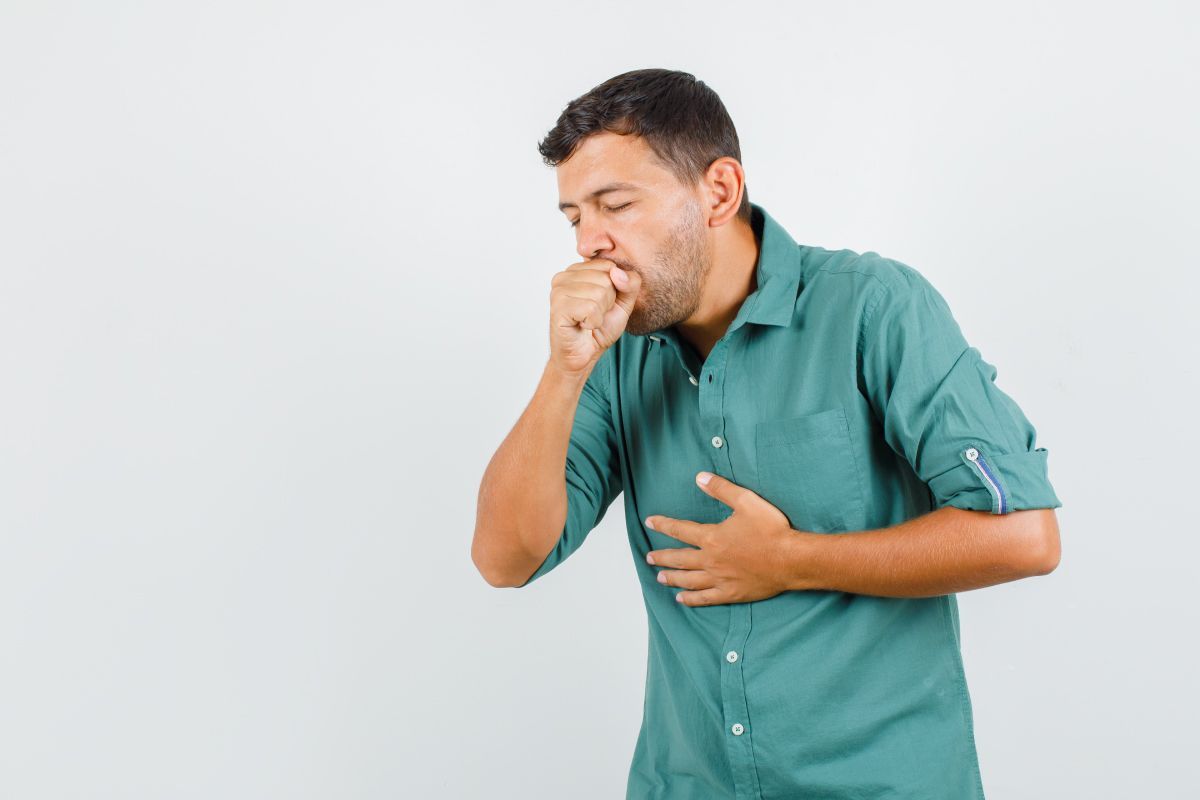Bronchitis
Bronchitis means that the tubes that carry air to the lungs (the bronchial tubes) are inflamed and irritated. When this happens, the tubes swell and produce mucus. This makes you cough.
There are two types of bronchitis:
- Acute bronchitis usually comes on quickly and gets better after 2 to 3 weeks. Most healthy people who get acute bronchitis get better without any problems.
- Chronic bronchitis keeps coming back and can last a long time, especially in people who smoke. Chronic bronchitis means you have a cough with mucus most days of the month for 3 months of the year for at least 2 years in a row.

This topic focuses on acute bronchitis. Both children and adults can get acute bronchitis.
What are the symptoms?
The most common symptom of acute bronchitis is a cough that is dry and hacking at first. After a few days, the cough may bring up mucus. You may have a low fever and feel tired.
The symptoms of either type of bronchitis may include:
- Chest discomfort
- Cough that produces mucus; if it's yellow-green, you are more likely to have a bacterial infection
- Fatigue
- Fever -- usually low
- Shortness of breath worsened by exertion or mild activity
- Wheezing
Acute bronchitis symptoms usually start 3 or 4 days after an upper respiratory tract infection. Most people get better in 2 to 3 weeks. But some people continue to have a cough for more than 4 weeks.
Pneumonia can have symptoms like acute bronchitis. Because pneumonia can be serious, it is important to know the differences between the two illnesses. Symptoms of pneumonia can include a high fever, shaking chills, and shortness of breath.
What causes acute bronchitis?
Acute bronchitis is usually caused by a virus. Often a person gets acute bronchitis after having an upper respiratory tract infection such as a cold or the flu. In rare cases, acute bronchitis is caused by bacteria.
Acute bronchitis also can be caused by breathing in things that irritate the bronchial tubes, such as smoke. It also can happen if a person inhales food or vomit into the lungs.
The following things can make bronchitis worse:
- Air pollution
- Allergies
- Certain occupations (such as coal mining, textile manufacturing, or grain handling)
- Infections
How is it treated?
Most people can treat symptoms of acute bronchitis at home. Drink plenty of fluids. Use an over-the-counter cough medicine with an expectorant if your doctor recommends it. This can help you bring up mucus when you cough. Suck on cough drops or hard candies to soothe a dry or sore throat. Cough drops won't stop your cough, but they may make your throat feel better.
How We Can Help
Our doctor will ask you about your symptoms and examine you. You might need lung function test which done in the office. This usually gives the doctor enough information to find out if you have acute bronchitis. In some cases, the doctor may order a chest X-ray to make sure that you don't have pneumonia or another lung problem.
Allergy , Asthma and Sinus Center | All Rights Reserved.
